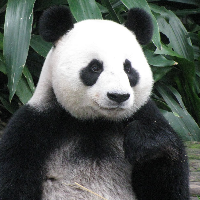
英语没有捷径,
就像饭要一口一口地吃,
问心无愧的功夫要一点一点地下。
本文是《英语词汇专题系列》第14篇。"Moon"这个单词,应该是咱们最早学的的单词之一。大家都记得学过the sun, the moon 和the stars,还记得“太阳,月亮前面需要加‘the’”的规则,因为它们都是独一无二的。然而,就像我一再强调的,真正牛的词汇量不是你背过多少单词,而是对于一个单词,甚至是一个看似很简单的单词,你知道它有多少意思,我把它定义为“可支配词汇量”——其核心在深度而不是广度。下面,咱们就深挖一下moon这个单词的常用意思吧。
首先谈到月亮,大家都会想到苏轼的《水调歌头》中的千古绝唱:“人有悲欢离合,月有阴晴圆缺”。
著名歌星王菲也唱过这首词,歌名叫做《但愿人长久》。
那么“阴晴圆缺”英语怎么说呢?还记得我讲过英语中“头韵”(alliteration)的修辞手法吗?很巧的是,英语中“阴晴圆缺”对应的两个单词完全符合“头韵”规则:wax and wane。
Wax:这里的“wax”可不是你所熟悉的“蜡”的意思,而是作为动词,意思是“(of the moon) to increase in the extent of its illuminated portion before the full moon”,也就是满月之前月亮被照亮的部分逐渐增大。
Wane:意思是“(of the moon) to decrease periodically in the extent of its illuminated portion after the full moon”,也就是满月之后月亮被照亮的部分逐渐增大。
两个词放在一起,wax and wane,用来指“Increase and decrease, as in size, number, strength, or intensity”,也就是比喻事物的增减,比如:
Enrollments in these programs wax and wane from year to year .
小贴士:
还有一对儿“头韵”单词也很有趣,warp and weft:
Warp: The lengthwise or longitudinal direction in weaving,也就是纺织里的“经线”
Weft:the horizontal direction in weaving,也就是纺织里的“纬线” 。
1. 其实,moon不只是指月亮,它还可以泛指类似月亮的卫星,也就是“any planetary satellite”,比如木星有79颗已经确认的卫星,就可以说:the moons of Jupiter.
2. 其次,作为名词,moon还可以指形状像“moon”的东西,也就是人的“buttocks”或者说“bottom”,这又引申出动词的意思“to expose one's buttocks to passers-by”。这种行径非常juvenile(幼稚),在好莱坞B类青春电影里很常见:一堆年轻人结伴hang out,喝高了就会moon people:
3. 除此之外,moon作为动词还可以指“to spend (time) idly”,作为及物动词时,之后一般有“away”相随,比如:
He mooned the afternoon away.
4. 作为不以物动词时,之后一般有“around”或者是“about”相随,比如:
You've been mooning about all day.
这里再介绍三个比较常用的有关moon的俗语:
1. once in a blue moon:意思是“very seldom”
“blue moon”是一种天文现象,出现的概率非常低。
所以它代指“a very long period of time”,很久很久才出现一次的事件自然是“非常稀有”了,比如:
He comes round once in a blue moon.
2. over the moon:意思是“extremely happy; ecstatic”,“非常高兴”,比如:
My parents were over the moon when I gave birth to my son.
3. reach for the moon:意思是“to desire or attempt something unattainable or difficult to obtain”,也就是“追寻不太容易实现的目标”,这个短语用在恋爱关系上,就是咱们常说的“癞蛤蟆想吃天鹅肉”。
知识奇妙如斯。
把英语说成母语的清华人,不拘小节,不随大流。
如果你喜欢我的文章,请点赞和关注。每天写一点,每天学一点,在学英语的同时学习英语国家文化。好好学习,天天向上。




















